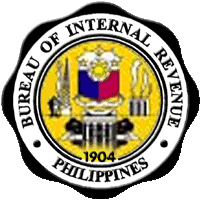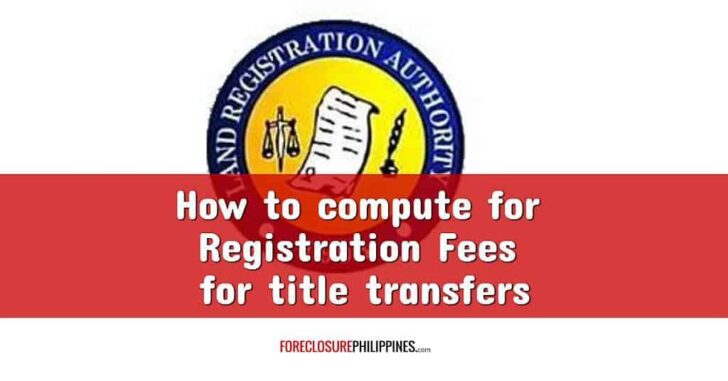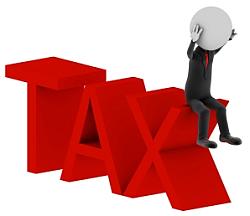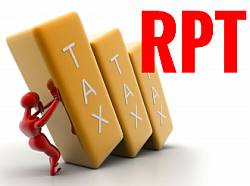Creditable withholding tax (CWT) is the tax which is withheld by the buyer/withholding agent from his payment to the seller for the sale of the seller’s ordinary asset/services, and which tax is creditable against the income tax payable of the seller. I know this sounds confusing so let me tell you about the withholding tax system first.
Disclaimer: While great effort has been taken to ensure the accuracy of the discussion here as of its writing, this is not intended to replace seeking professional services. Do read up on the relevant laws and regulations also.
Background on the Withholding Tax System
We all know that the ordinary income of a person/corporation is subject to regular income tax. Under the withholding tax system, the government gives the buyer the responsibility to withhold a certain percentage of his payment to the seller and remit the same to the government. Thus, the amount remitted by the buyer to the seller is less than the purchase price. The buyer should provide the seller with BIR Form No. 2307 (Certificate of Creditable Taxes Withheld) which states the amount of the taxes he withheld.
The tax withheld is called the withholding tax and the buyer in this case is called a withholding agent. Please note that this only applies to the ordinary income of the seller, as opposed to his capital gain. Please refer to my earlier post on the difference between ordinary assets and capital assets.
“What is the rationale for this system?”, you may ask.
To put it simply, the tax withheld by the buyer acts as the advanced payment of the seller’s taxes. Since the seller will only pay income taxes on a quarterly basis, and the government spends all throughout the year, it would be difficult for the government to operate if it only gets income taxes quarterly. Also, since the buyer withholds only a small percentage of the seller’s gross receipts (let’s say 2%), the government is alerted that the seller realized income to the extent of the grossed-up amount of the taxes withheld.
For example, P2,000.00 which pertains to 2% withholding tax means that the seller sold P100,000.00 worth of assets/services for which he should pay income taxes. When the time comes for the payment by the seller of his income taxes, and he doesn’t declare the income from which the buyer withheld taxes, a discrepancy will arise and the government will have a tip to investigate whether the seller is paying the correct taxes.
Take note, the Bureau of Internal Revenue (BIR) already has computer software in place which determines discrepancies automatically.
On the part of the buyer, he must withhold taxes, otherwise, he will not be able to deduct his expense. For example, if his expense is P100,000.00 and he is required to withhold 2% of this or P2,000.00 and he does not withhold and remit this amount, for income tax computation purposes, he may not deduct his P100,000 expense from his taxable income.
Thus, if his gross income is P200,000.00 and he may not deduct the P100,000.00 expense (assuming there are no other deductible expenses of course), he will pay taxes based on a net income of P200,000.00 instead of P100,000.00.
On the part of the seller, since the taxes withheld act as his advanced payment of his income tax, when the time comes for the quarterly payment of income taxes, he will subtract the tax withheld from his income tax payable. For example, if his income tax payable is P32,000.00 and the tax withheld from him is P2,000.00, then he will only pay P30,000.00 income tax.
As proof of the taxes withheld, he should attach the BIR Form No. 2307 (Certificate of Creditable Taxes Withheld) provided by the buyer to his income tax return.
Creditable Withholding Taxes On Real Estate Transactions
As earlier noted, this only applies to the sale of real estate which are ordinary assets of the seller. Thus, when the real estate sold is a capital asset to the seller, his income from the sale of real estate will be subject to capital gains tax, and no creditable withholding tax shall be imposed on the transaction.
Please refer to my earlier post about ordinary assets vs. capital assets. From hereon we will assume that we are talking about the sale of ordinary real estate assets.
Going now to the creditable withholding tax base, the withholding agent/buyer is required to withhold a creditable withholding tax based on the higher of the following:
a) gross selling price/total amount of consideration, orb) the fair market value determined in accordance with Section 6(E) of the Code.
Under Section 2.57.2 (J) of Revenue Regulations (RR) No. 2-98, as amended by RR No. 6-2001, the percentages of taxes to be withheld are as follows:
A. Upon the following values of real property where the seller /transferor is habitually engaged in the real estate business as per proof of registration with the HLURB or the HUDCC or other satisfactory evidence (for example, he/it consummated during the preceding year at least six taxable real estate transactions, regardless of amount):
| a)With a selling price of Seven Hundred Fifty Thousand Pesos (P500.000.00) or less | 1.5% |
| b)With a selling price of more than Five Hundred Thousand Pesos but not more than Two Million Pesos (2,000,000.00) | 3.0% |
| c)With a selling price of more than Two Million Pesos (2,000,000.00) | 5.0% |
B.
| Where the seller/transferor is not habitually engaged in the real estate business (but the real estate sold is an ordinary asset) | 6.0% |
C.
| Where the seller/transferor is exempt from creditable withholding tax in accordance with Section 2.57.5 of Revenue Regulations No. 2-98 [When the seller is exempt from income taxes. As earlier noted, the creditable taxes withheld serve as advance payment of income taxes. So when a seller is tax-exempt, it follows that no tax should be withheld from his income.] | Exempt |
Please note that the sale of foreclosed properties by banks is subject to creditable withholding tax of 6% because banks are not considered as habitually engaged in the real estate business, and properties acquired by banks through foreclosure sales are considered as ordinary assets pursuant to Revenue Regulations No. 7-2003.
Time and Place of Payment of Creditable Withholding Tax
A. General Rule
Section 4 of RR No. 004-08 dated February 19, 2008 provides for the time and place of payment of creditable withholding tax and DST on the sale, exchange or other mode of onerous disposition of real properties classified as ordinary assets.
Creditable withholding taxes deducted and withheld by the withholding agent/buyer on the sale, transfer or exchange of real property classified as ordinary asset, shall be paid by the withholding agent/buyer upon filing of the return with the Authorized Agent Bank (AAB) located within the Revenue District Office (RDO) having jurisdiction over the place where the property being transferred is located within ten (10) days following the end of the month in which the transaction occurred. The creditable withholding tax return is BIR Form 1606.
Taxes withheld in December shall be filed on or before January 15 of the following year. Please note that this is subject to the rules prescribed by Electronic Filing and Payment System (EFPS) regulations in case the taxpayer is an EFPS taxpayer. Useful tip: You can find the AAB’s for each RDO in the BIR website. Just click on the RDO number concerned.
Rules under Section 2.57.2 (J) of Revenue Regulations (RR) No. 2-98, as amended by RR No. 17-2003, in cases where the buyers are engaged or not engaged in trade or business:
B. Buyer is not engaged in trade or business
Under Section 2.57.2 (J) of Revenue Regulations (RR) No. 2-98, as amended by RR No. 17-2003, if the sale is a sale of property on the installment plan (i.e., payments in the year of sale do not exceed twenty five percent (25%) of the selling price), no withholding is required to be made on the periodic installment payments.
In such a case, the applicable rate of tax based on the gross selling price or fair market value of the property at the time of the execution of the contract to sell, whichever is higher, shall be withheld on the last installment or installments immediately prior to such last installment, if the last installment is not sufficient to cover the tax due, to be paid to the seller until the tax is fully paid.
If the sale is on a “cash basis” or is a “deferred-payment sale not on the installment plan” (that is, payments in the year of sale exceed 25% of the selling price), the buyer shall withhold the tax based on the gross selling price or fair market value of the property, whichever is higher, on the first installment.
C. Buyer is engaged in trade or business
If the sale is a sale of property on the installment plan [i.e., payments in the year of sale do not exceed twenty five percent (25%) of the selling price], the tax shall be deducted and withheld by the buyer from every installment which tax shall be based on the ratio of actual collection of the consideration against the agreed consideration appearing in the Contract to Sell applied to the gross selling price or fair market value of the property at the time of the execution of the Contract to Sell, whichever is higher.
If the sale is on a “cash basis” or is a “deferred-payment sale not on the installment plan” (that is, payments in the year of sale exceed 25% of the selling price), the buyer shall withhold the tax based on the gross selling price or fair market value of the property, whichever is higher, on the first installment.
In any case, no Certificate Authorizing Registration (CAR)/Tax Clearance Certificate (TCL), shall be issued to the buyer unless the withholding tax due on the sale, transfer, or exchange of real property has been fully paid.
For the sale of property on installment basis or deferred payment basis where the Contract to Sell is always executed before the execution of the Deed of Sale, the said Contract to Sell must be attached to the Deed of Absolute Sale executed upon completion of the payments and the duly notarized original duplicate copy of both documents must be presented to the RDO having jurisdiction of the place where the property is located for validation of the correctness of issuance of CAR/TCL.
If upon completion of the payment of the purchase price of real property classified as ordinary asset, but before the execution of the Deed of Sale, the buyer decides to assign his right over the property to another person for a consideration, the assignment shall be considered a separate sale of real property and, therefore, subject to the creditable/expanded withholding tax (EWT) or final withholding of capital gains tax, as the case may be, which shall be withheld by the assignee of such property based on the consideration per Deed of Assignment or the fair market value of such property at the time of assignment, whichever is higher, and to the DST imposed under Sec. 196 of the same Code using the same basis.
It is to be clarified, however, that sale of interest in real property (real property purchased on installment covered by Contract to Sell which was sold by the original buyer before it was fully paid) shall be taxable on the part of the original buyer (now seller) based on the realized gain thereon which is measured by the difference between the agreed consideration and the amount actually paid by the said original buyer.
Conclusion
As you may have noticed, there are many nuances to the CWT so I hope you’ll understand the delay in the release of this post. Just post your questions, if any, in the comments section so that my wife can research on them and I can get back to you. If there’s a delay once again, please be patient as I can’t force my wife. The more I tell her to do something, the more she doesn’t do it. =)
Do you want to start investing in foreclosed properties? Click here to subscribe via email and keep yourself updated with foreclosure listings, public auction schedules, and real estate investing tips!








Sir Jay,
We bought a foreclosed property from a bank (ordinary asset) & paid thru installment. We actually met you during the Auction Sale.
My question is, Why did the BIR based the reckoning date for the payment of tax based on the Receipt of Full payment rather than the Notarized date of the Absolute Deed of Sale?
Now they are computing penalties for late filing & payment of tax when the bank only recently issued the Deed of Sale. How could we have known that the CWT is already due? Your response will be highly appreciated.
Hi Ms. Marie Ann, kamusta napo!
From what I understand, as long as more than 25% of the selling price has been paid, CWT will become due, even if there is still no deed of absolute sale.
In your case, full payment will obviously be more than 25% so the date of full payment was made will mean CWT should already be paid/filed.
The bank should already know this as the seller who has done the same transaction so many times.
Very clear and comprehensible, thank you so much, sir.
Hi tel, thank you for the feedback, much appreciated!
Is the CWT paid by the Buyer refundable from the Seller (Rural Bank)? May I know some references?
Hi Rose, are you asking if the Rural Bank (seller) can reimburse the buyer if the buyer paid for the CWT? Depende kung ano ba ang usapan niyo. Kung sinabi ng bank na sagot nila CWT tapos binayaran ng buyer, dapat pwede i-reimburse. What is the policy of the bank regarding who shoulders CWT?
Hi Jay, with the new taxes imposed on the sale if an ordinary asset, i am so confused as to the list of taxes i will be paying when i sell my commercial lot property classified as ordinary asset. Inam.a non-vat taxpayer. My property is a commercial lot leased to a company. I have gone to 2 different BIR offices to ask for a computation of the taxes i am supposed to pay but unfortunately i was given 2 different lists and computation of taxes. The first bir office listed the taxes as
1. 3% of gross sale price.
2. 20% of income tax of the current year.
3. 6% of sale price as creditable withholding tax.
4. 1.5% documentary stamp tax
2nd BIR office gave this list:
1. 12% VAT
2. 6% Capital Gains Tax
3. 1.5 Documentary Stamp Tax
They are so different i am so confused.
Hope you can enlighten me.
Thank you and hope to hear from you.
Hi Rocco, at first glance I can see inconsistencies in the 2nd computation because it has CGT (not applicable if your property is an ordinary asset), and yet it also includes VAT which is for ordinary assets. Better escalate to the higher-ups to get another assessment (hopefully they get it right this time) at the Revenue District Office that covers the location of your property and explain that your property is an ordinary asset. You can also show the previous assessments and ask for an explanation (I think the one who did the 2nd assessment will get a phone call from them). Good luck.
Pingback: 255th Unionbank Foreclosed Properties Auction Slated on September 24, 2016
Pingback: UCPB Foreclosed Properties and Repossessed Cars for sale as of June 2016
Shouldn’t Buyer in “B. Buyer is not engaged in trade or business and C. Buyer is engaged in trade or business”
above be Seller instead?
it correctly pertains to the buyer
Thanks again Tel!
Very informative. Thank you.
Sir, iba pa ba un withholding tax remittance return or form 1606? Thanks po in advance!
Krys
Hi. If the seller corporation pays the CREDITABLE WITHOLDING TAX AT 3 %, does the buyer still pay for the CAPITAL GAINS TAX at 6%?
hi po! i am one of your social media followers. ask ko lng po ang range ng 1.5% CWT, is it for ordinary assets with selling price of P500,000 and below or for those with selling price of seven hundred fifty thousand and below? (based on the table presented above). thanks po!
Hi Jay, when you buy a lot, house and lot or condo from developers like ayala land as an individual, do you have to withhold taxes from them? Who pays the withholding tax so your CAR can be processed?
If I use a corporation to buy from them then I should. Withhold from them right? Thank you.
Pingback: How to Compute For Registration Fees - ForeclosurePhilippines.com
Pingback: 20 Tips - How To Top The Real Estate Brokers' Licensure Exam - ForeclosurePhilippines.com
This is a very informative site. I learned a lot about real estate taxes!!
Hi Sir. Jay,
Thank you for sharing all this information, marami po kayo natutulungan..
Question lang po, is it possible to a disolve corporation for more than 20yrs. to sell a property under the corporation name? Or Do they need an asignee? And what are the taxes that they need to pay?
Thank you sir. More power and God bless
When do you consider an ordinary taxpayer habitually engaged in Real Estate business? It says 6 sale transactions but does this mean only selling or, selling and buying combined? If he’s already considered engaged in Real Estate, he’s now supposed to pay CWT instead of CGT right? or both? Thanks!
Hi JV,
I also had the same question and based on feedback from a mentor of mine (Engineer Enrico Cruz), it is a combination of buying and selling which means buying and selling 3 properties would already mean 6 transactions, and instead of CGT, one should begin to pay CWT. It is either one or the other(CGT OR CWT), never both.
Cheers!
Hi Jay! Thank you for your swift reply and for helping us sort our queries! Sorry for my ignorance as I want everything to be clear before we take on a business offer. How about VAT? we wont be affected by that if we’re not a company? I’ll just build and sell a few properties not really aggressive development. Thank you again!
You’re welcome JV, with regards to VAT, I believe you will not be affected unless you will go beyond the thresholds. Please refer to my wife’s article about this: https://www.foreclosurephilippines.com/2011/11/threshold-for-vat-exemptions-to-be-increased-effective-january-1-2012.html. Cheers!
hi,
if our situation is applicable to letter B (with 6% CWT) are we also bound to pay the CGT of 6% and VAT of 12%?
Thanks.
elvie
Hi Elvie, it is either CWT or CGT, so if CWT is applicable to your transaction, no need to pay CGT.
Hi Jay,
Not sure if kung may lumabas ka nang blog about the sample computation based on your actual transaction, but let me ask anyway, do you have one?
i pay a rental fee of 36,951.92 this is already a net amount deducted from 5% withholding tax and already have 12% e-vat. i want to know what is my rental fee without e-vat and withholding tax.
sir your posts is really a big help to us. just some point of clarification, cwt on sale of real estate as ordinary asset can be used to pay off your income taxes, thats crystal clear. but my query is if the excess CWT on sale of real estate held as ordinary can be carried over?
your answer would be really a big help…
thanks and more power…
I have an inquiry on our condo purchase. The current situation is we’ve already paid the installment amounts and the TURNOVER balance is the one due however we have a buyer for the unit and he will be the one to pay the turnover to the developer. He will return part of what we paid also.
Transfer fees charged by the developer is 50,000.00 However the developer is also asking us to remit the 3% withholding tax that they paid BIR in advance as shown in BIR form 1606 they gave us. Seller is the developer and our name is under the buyer on that form.
As I understood it based on my readings, the WTax (1606) will be credited to the Tax payable of the developer therefore though they paid this in FULL they benefited on this also and no amount was lost on their end since the amount withheld is a tax due.
My questions are:
1. Is there a BIR tax due on condo units being transferred to a new buyer on units NOT FULLY paid? If yes, is there a amount paid threshold or BIR comes in when it’s 100% paid as CGT.
2. Why is the developer asking us to give back the withheld amount they paid? If they insist that we pay this, can this be creditable to our tax payable? Will they give us a 2307to support it?
3. Can 1606 be amended if the unit is transferred from original buyer to new buyer? Seller will still be the developer. If yes, is there a need to give them 3% still?
4. The developer told me that instead of us paying the 6% CGT they’re offering this 3% instead cause it’s smaller if you’ll look at it. But how will we pay CGT if the unit is not fully paid?
5. The developer told us that BIR knows that we purchased a unit already (since they submitted 1606 before). And that BIR will know if the unit will be transferred to a new name implying that there is a sale that happened before full payment.. I wonder if that’s the reason why they’re asking for the 3% of total contract price. Will this tax be under our name then?
6. Are taxes on condo units and land/house & lot the same?
I’m totally confused with all these and makes me dislike condo purchases in the future. Hope you can help me because I would like to have information when I further ask the developer on the additional payment they’re asking us. It’s okay to pay as long as I know the logic behind what I am paying.
Thank you and hope to hear from you Sir.
Hi Jay, are you still there? I have several questions too but I don’t see an acknowledgement on your end anymore…
Hi Jay, I have a question and i would appreciate it very much if you can help me with this. I’m living here in Europe and no longer a filipino citizen, however I do have a house in philippines which is for rent now, but i’m not familiar with this cwt as this is the first time I’m going to put my house for rent. My question is does my property or do I have to pay cwt for the rental I get from my property? Does the renters have to withold taxes for the rent and how much?